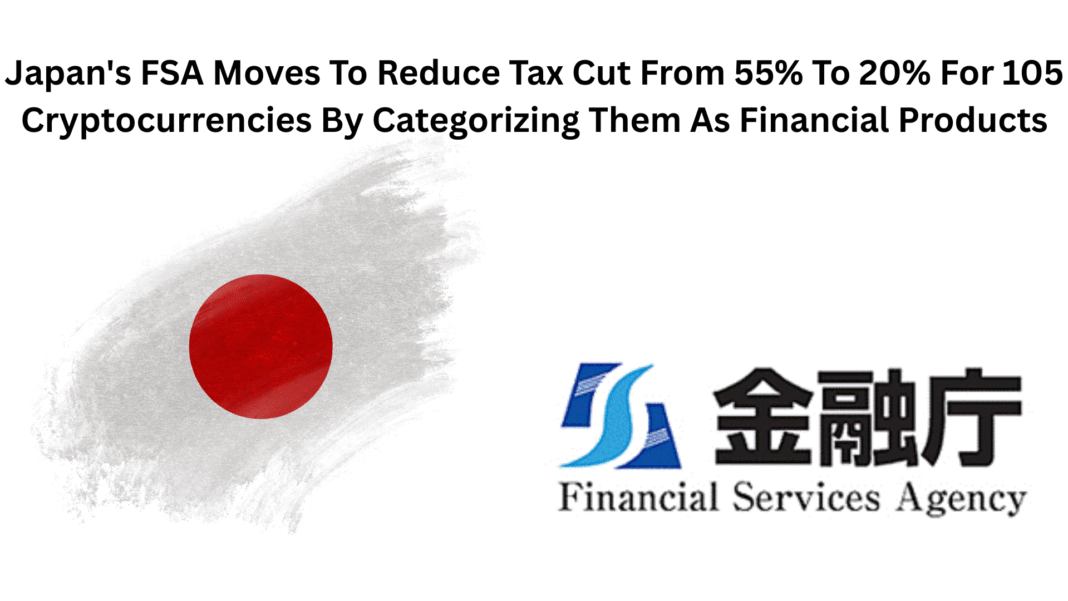According to a report from local news outlet Asahi Shimbun, Japan’s Financial Services Agency (FSA) is attempting to put leading cryptocurrencies under the same regulatory framework that oversees equities.
The Financial Instruments and Exchange Act of Japan will classify 105 cryptocurrencies, including Bitcoin and Ethereum, as “financial products” if the plan is put into action. This might lead to a substantially lower tax rate on cryptocurrency as well as far stricter transparency obligations.
After the news broke out, Binance Co-Founder CZ said, “Great step for Japan.” He said lower “fees” is equal to more economic growth.
Information from exchanges
Exchanges would have to reveal comprehensive details on the cryptocurrencies they offer under the FSA’s plan, such as volatility data, information about the underlying technology, and the name of the issuer (if known).
In 2026, the FSA plans to present its proposal to Japan’s primary parliament for review and potential acceptance.
Profits from cryptocurrency investments are now categorised as “miscellaneous income” in Japan, where they may be subject to a tax rate of up to 55%, which is among the highest in the world.
Earnings on the 105 authorised cryptocurrencies would be reclassified as capital gains and subject to a flat tax rate of only 20% under the FSA’s proposed scheme, which would handle them similarly to stock earnings.
Insider trading in the cryptocurrency market would also be severely curbed under the idea, which would prohibit people and organisations with insider knowledge about a specific cryptocurrency from purchasing or disposing of the affected token.
Banks and cryptocurrencies
Following its announcement last month that it would allow Japanese banks to engage in cryptocurrencies, the FSA has changed its regulations pertaining to digital assets.
Japanese banks have been essentially prohibited from making investments in digital assets since 2020. However, the FSA has stated that it plans to develop a new framework that permits banks to engage in the cryptocurrency market while upholding more stringent capital and risk-management requirements.
According to reports, the regulator is also investigating whether bank groups should be allowed to register as regulated cryptocurrency exchanges so they may provide direct trading and custody services to clients.
Japan on stablecoins
As Japan continues its efforts in payment innovation, the FSA has formally confirmed its approval for a stablecoin pilot project involving the country’s three major banks.
The project brings together Mizuho Bank, MUFG, and SMBC in a concerted effort among the megabanks to collectively issue a stablecoin for payments.
Japan’s FSA is getting ready to authorise the first stablecoin backed by the yen. This will be the first time a Japanese regulator has approved a domestic fiat-linked digital currency, enabling fintech company JPYC to introduce a digital token pegged at 1 JPY = 1 yen.


